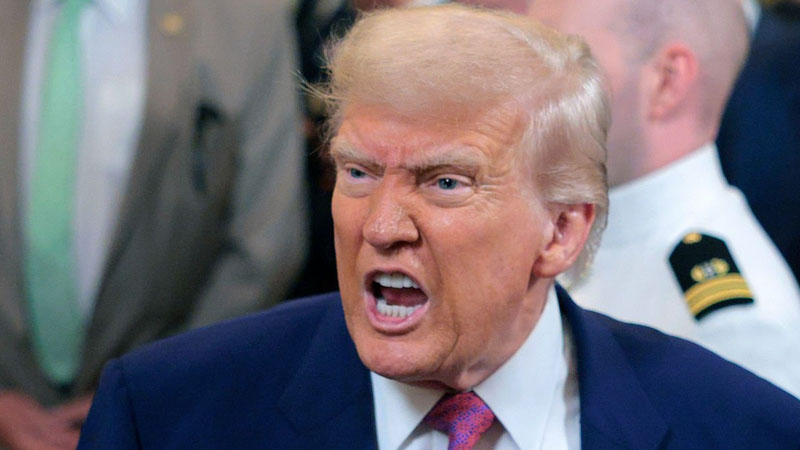In a historic break from more than a century of tradition, the NAACP has announced that President Donald Trump will not be invited to its 2025 national convention, making him the first sitting president in 116 years to be excluded from the event.
According to The Associated Press, the civil rights organization cited fundamental ideological differences as the reason for the decision, stating that President Trump’s actions and policies run counter to its mission.
“This has nothing to do with political party,” NAACP President Derrick Johnson told AP. “Our mission is to advance civil rights, and the current president has made clear that his mission is to eliminate civil rights.”
Since returning to the office in January 2025, President Trump has taken sweeping action to dismantle diversity, equity, and inclusion (DEI) initiatives across the federal government. One of his first executive orders in the new term instructed federal agencies to discontinue the use of DEI principles in hiring, labeling such practices as “illegal and immoral discrimination programs.”
Subsequent orders from the Trump administration have targeted DEI efforts in multiple sectors. These include removing DEI from the Foreign Service, directing investigations into private companies that promote DEI programs, and banning the use of DEI initiatives within both civil and uniformed military branches.

The administration has instead advocated for what it calls a “merit-based” approach to federal hiring. The shift has drawn strong opposition from civil rights organizations, with the NAACP filing several lawsuits challenging the legality and intent of these new policies.
Adding to the controversy, President Trump appointed Harmeet Dillon, a member of the conservative Federalist Society, to lead the Department of Justice’s Civil Rights Division. Dillon has previously argued that civil rights laws should “benefit all Americans, not just a select few,” according to NPR.
While the NAACP has historically hosted Republican presidents—including George H. W. Bush and Ronald Reagan—despite ideological clashes over civil rights issues, this year’s decision reflects a sharper divide between the organization’s mission and the Trump administration’s agenda.
The NAACP’s decision underscores the widening rift between the nation’s leading civil rights organization and the federal government, as ongoing legal battles over DEI policies and civil rights enforcement signal an era of intensified conflict.

